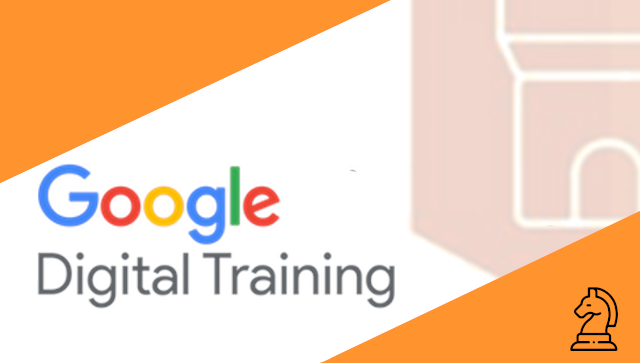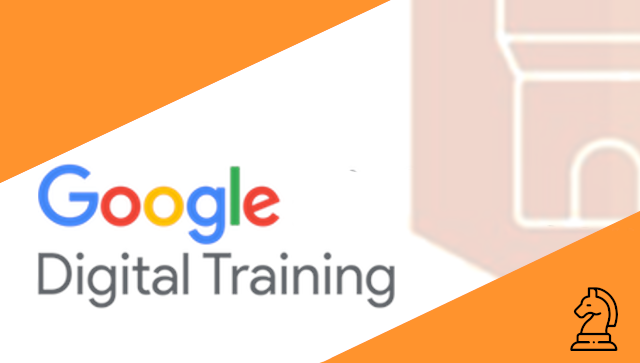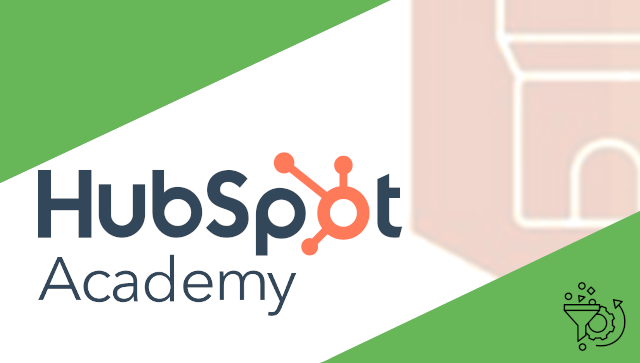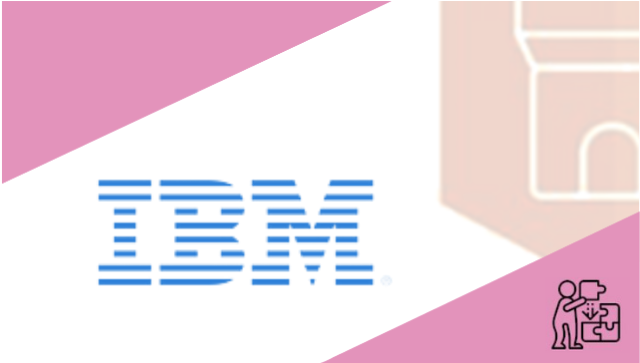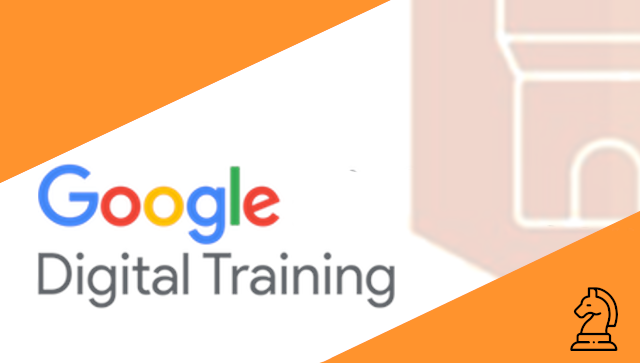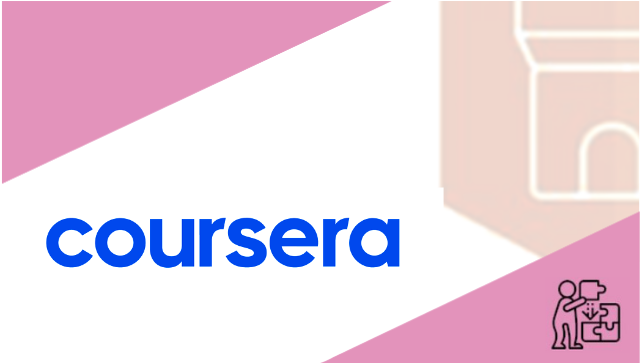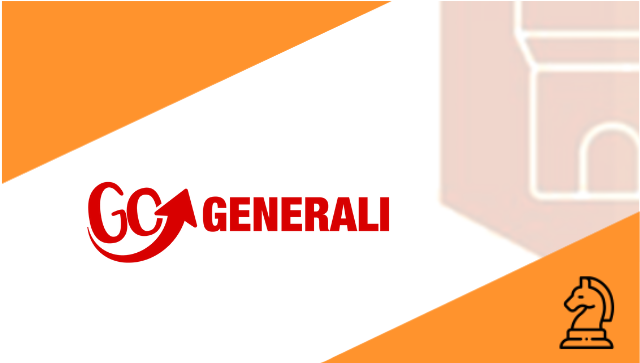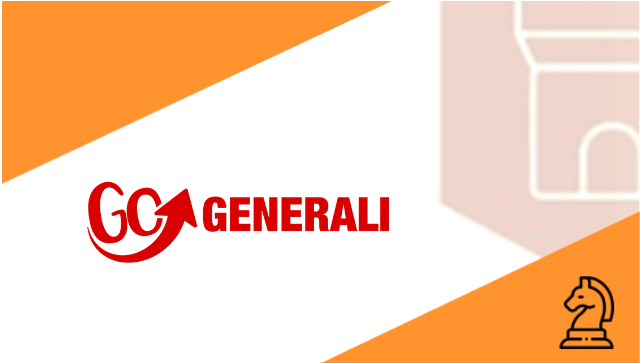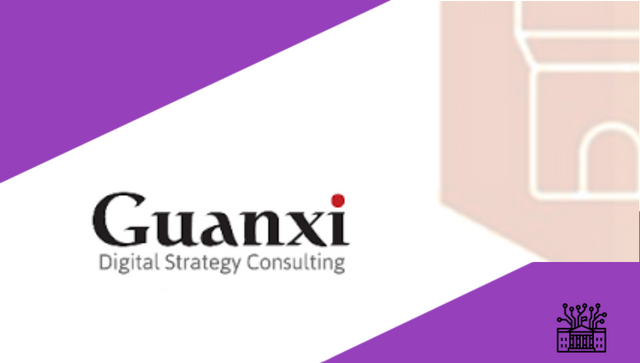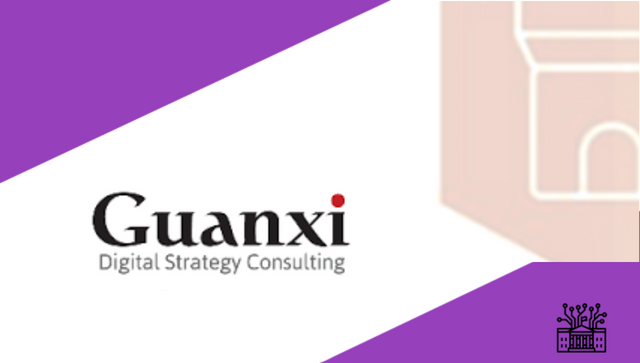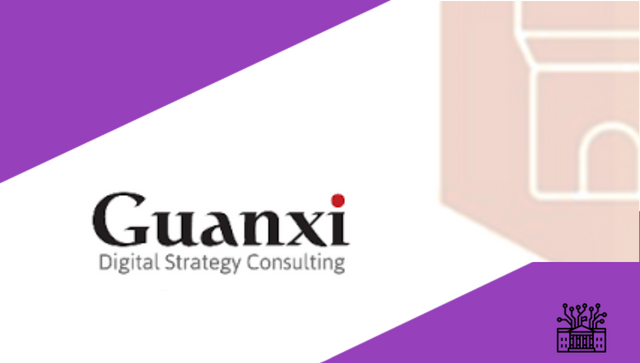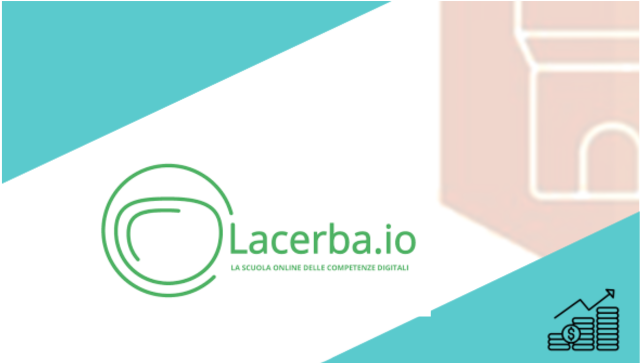Stage Digital CFU - Università Cattolica Sacro Cuore - APPROFONDIMENTO PROJECT MANAGEMENT
OPZIONE 4 CLUSTER APPROFONDIMENTO PROJECT MANAGEMENT
"Stage Digital" è il progetto della Facoltà di Economia dell’Università Cattolica del Sacro Cuore in partnership con Guilds42.
Questo cluster di Certificazioni è di Apporfondimento sul tema del Project Management e l'introduzione di strumenti basici per gestire progetti e processi in azienda (incluso Machine Learning con Element of AI). Nel percorso di introduzione al PM è fondamentale anche sviluppare competenze elevate di excel e modalità Agile.
Come funziona:
Si tratta di un nuovo modello di stage (Stage Digital – SD) per la Facoltà di Economia di Milano dell’Università Cattolica del Sacro Cuore (UCSC).
Tale percorso è rivolto agli studenti di Laurea Magistrale alle seguenti condizioni:
- media del 26;
- CFU conseguiti: almeno 40.
- non potrà avere una durata inferiore ai tre mesi;
corrisponde a 8 CFU;
si compone di due parti:
- Percorso di Certificazione in ambito Digital, volto a far conseguire agli studenti un cluster coerente di skill digitali;
- Percorso di Bottega, che consiste in un progetto reale il cui funzionamento presenta analogie con le Botteghe rinascimentali fiorentine.
Il possesso di tali certificazioni costituisce un punto di forza in vista dell’accesso alla carriera presso società di Consulenza Strategica.
Importante: è importante tenere traccia dell'iscrizione dello studente a questo programma. Potrai iscriverti a questo programma con email universitaria o con quella personale. Diviene però OBBLIGATORIO, una volta registrato il proprio account (e ricevuto email di attivazione), che venga inserito il codice UNICATT02 nel proprio profilo dove indicato “inserisci tag”
Esistono tre livelli di valutazione che andranno a comporre il voto finale e i CFU.
A. La valutazione delle Certificazioni dipende dal numero di Score Corsi e dalla qualità del passaggio delle certificazioni:
- 84 punti 26-27
- 85-100 punti 28
- 100-120 29
- Oltre 120 30-30 e lode
B. Lavoro individuale nella Bottega
Il Maestro d’Arti, interagendo costantemente con gli Apprendisti, è in grado di valutare il contributo di ciascuno. Pertanto esso potrà assegnare un voto che varia da 20 a 30 e lode.
C. Lavoro di team di Bottega
Al momento di consegna dei lavori di Bottega, Mecenate, Maestro d’Arti e Artista valuteranno congiuntamente il lavoro svolto dagli Apprendisti. A questo scopo si può ipotizzare la seguente scala:
- Sufficiente 18-22
- Discreto 22-24
- Buono 25-26
- Soddisfacente 27-28
- Ottimo 29-30 e lode
Il Coordinatore Guilds42 e il Coordinatore UC si fanno garanti che il processo di valutazione degli Apprendisti venga completato regolarmente e comunicato alla Segreteria di Facoltà.
A questo punto allo studente vengono assegnati 8 CFU crediti formativi. Il voto sarà assegnato dal Coordinatore UC.
Sei iscritto al cluster
Al momento hai
0
certificazioni
Per questo cluster devi completare 12 certificazioni e tu ne hai già completati 0
- Understand the significance of the initiation phase of the project life cycle.
- Understand the key components of project charters and develop a project charter for project initiation.
- Complete a stakeholder analysis and utilize RACI charts to define and communicate project team member responsibilities.
- Evaluate various project management tools to meet project needs
- Introduction to Course (23 minutes)
- Why is project initiation essential? (3 minutes)
- Key components of project initiation (3 minutes)
- Afsheen: Listening to learn (3 minutes)
- Course 2 overview (10 minutes)
- Helpful resources to get started (10 minutes)
- Zooming in on project scope (10 minutes)
- Reflection: Project initiation and key components (17 minutes)
- Weekly Challenge (130 minutes)
- Introduction: Defining project goals, scope, and success criteria (2 minutes)
- Determining project goals and deliverables (5 minutes)
- How to set SMART goals (7 minutes)
- Determining a project's scope (4 minutes)
- Monitoring and maintaining a project's scope (6 minutes)
- Managing changes to a project's scope (6 minutes)
- Torie: The importance of staying within scope (2 minutes)
- Launching and landing a project (3 minutes)
- Defining success criteria (8 minutes)
- Wrap-up (36 seconds)
- SMART goals: Making goals meaningful (10 minutes)
- Objectives and Key Results: Building and implementing OKRs (10 minutes)
- Gathering information to define scope (10 minutes)
- Scope creep: A case study (10 minutes)
- Optional: Reviewing the Triple Constraint (10 minutes)
- Don't forget to land: Measuring project success (10 minutes)
- Tracking and communicating success criteria (10 minutes)
- Using OKRs to measure outcomes (10 minutes)
- Test your knowledge: Identifying project goals (12 minutes)
- Test your knowledge: Defining project scope (8 minutes)
- Reflection: Applying the Triple Constraint (19 minutes)
- Weekly Challenge (255 minutes)
- Introduction: Working effectively with stakeholders (1 minute)
- Accessibility for project managers (3 minutes)
- Choosing a project team (5 minutes)
- Defining project roles (6 minutes)
- John: The importance of a project team (2 minutes)
- Completing a stakeholder analysis (7 minutes)
- Elements of a RACI chart (4 minutes)
- Certificate completers: Staying motivated in the program (1 minute)
- Wrap-up (1 minute)
- The building blocks of a project dream team (10 minutes)
- Essential project roles (10 minutes)
- Prioritizing stakeholders and generating their buy-in (10 minutes)
- Activity Exemplar: Complete a stakeholder analysis and power grid (10 minutes)
- Building out a RACI chart (10 minutes)
- Exemplar: Set project roles and responsibilities in a RACI chart (10 minutes)
- Getting the most out of a RACI chart (10 minutes)
- Activity Exemplar: Assign project roles and responsibilities in a RACI chart (10 minutes)
- Why projects fail: Initiation missteps (10 minutes)
- Activity: Complete a stakeholder analysis and power grid (30 minutes)
- Test your knowledge: Evaluating stakeholders (8 minutes)
- Activity: Set project roles and responsibilities in a RACI chart (30 minutes)
- Activity: Assign project roles and responsibilities in a RACI chart (30 minutes)
- Weekly Challenge (340 minutes)
- Introduction: Utilizing resources and tools for project success (1 minute)
- Essential project resources (5 minutes)
- The value of project documentation (2 minutes)
- Project proposals and charters (1014 minutes)
- Developing a project charter (6 minutes)
- Utilizing tools for effective project management (4 minutes)
- Exploring types of project management tools (3 minutes)
- Common project management tools (4 minutes)
- Amar: Tools are our best friends (1 minute)
- Course wrap-up (2 minutes)
- Managing resources to get the job done (10 minutes)
- Project charters: Elements and formats 810 minutes)
- Introducing new tools to a team (10 minutes)
- Demonstrating your knowledge of project management tools (10 minutes)
- Course 2 glossary (10 minutes)
- Get started on Course (310 minutes)
- Test your knowledge: Evaluating tools (10 minutes)
- Reflection: Project tools (19 minutes)
- Weekly Challenge (445 minutes)
- Describe the components of the project planning phase and their significance.
- Identify tools and best practices to build a project plan and risk management plan.
- Describe how to estimate, track, and maintain a budget.
- Draft a communication plan and explain how to manage it.
- Introduction to Course (33 minutes)
- The benefits of project planning (2 minutes)
- Launching the planning phase (3 minutes)
- Facilitating a project kick-off meeting (7 minutes)
- Understanding tasks and milestones (2 minutes)
- The importance of setting milestones (4 minutes)
- How to set milestones (3 minutes)
- Creating a work breakdown structure (7 minutes)
- Wrap-up (1 minute)
- Clennita: How planning creates a sense of team (2 minutes)
- Course 3 overview (10 minute)
- Helpful resources to get started (10 minute)
- Tips for leading a successful kick-off meeting (10 minute)
- Setting milestones: Best practices (10 minute)
- Breaking down the work breakdown structure (10 minute)
- Activity Exemplar: Use a WBS to create project tasks and milestones - Part 1 (10 minute)
- Activity Exemplar: Use a WBS to create project tasks and milestones - Part 2 (10 minute)
- Reflection: Project planning considerations (19 minutes)
- Test your knowledge: The planning phase components (6 minutes)
- Activity: Use a WBS to create milestones and project tasks - Part 1 (30 minutes)
- Activity: Use a WBS to create milestones and project tasks - Part 2 (30 minutes)
- Weekly Challenge (150 minutes)
- Introduction: Building a project plan (1 minute)
- Components of a project plan (2 minutes)
- Making realistic time estimates (7 minutes)
- Capacity planning and the critical path (8 minutes)
- Getting accurate time estimates from your team (6 minutes)
- Angel: The value of interpersonal skills in time estimation (3 minutes)
- Developing a project schedule (5 minutes)
- Project plan best practices (5 minutes)
- Wrap-up (1 minute)
- Putting together the pieces of a project plan (10 minutes)
- Case study: Run fast, pay later (10 minutes)
- Overcoming the planning fallacy (10 minutes)
- Creating a critical path (10 minutes)
- Creating a project plan: Tools and templates (10 minutes)
- Introduction to Kanban boards (10 minutes)
- Test your knowledge: Getting started with a project plan (8 minutes)
- Reflection: Time estimation (15 minutes)
- Test your knowledge: Utilizing tools to build a project plan (6 minutes)
- Weekly Challenge (230 minutes)
- Introduction: Managing budgeting and procurement (1 minute)
- The importance of budget setting (5 minute)
- Key components of a project budget (4 minute)
- Creating a project budget (6 minute)
- Maintaining a project budget (4 minute)
- Understanding procurement (3 minutes)
- The procurement process (3 minutes)
- Common procurement documentation (4 minutes)
- Creating a Statement of Work (5 minutes)
- Obtaining procurement support (3 minutes)
- Ethics in the procurement process (5 minutes)
- Wrap-up (1 minutes)
- Project budgeting 101 (10 minutes)
- Helpful budget templates (10 minutes)
- Overcoming budgeting challenges (10 minutes)
- Activity Exemplar: Develop a project budget (10 minutes)
- Optional: Introduction to budgeting terms (10 minutes)
- Tips for the procurement process (10 minutes)
- Activity Exemplar: Complete a Statement of Work (SoW) (10 minutes)
- Avoiding ethical traps in procurement (10 minutes)
- Test your knowledge: Understanding project budgets (4 minutes)
- Activity: Develop a project budget (30 minutes)
- Test your knowledge: Creating a project budget (6 minutes)
- Test your knowledge: Introduction to procurement (8 minutes)
- Activity: Complete a Statement of Work (SoW)(30 minutes)
- Test your knowledge: Navigating procurement challenges (8 minutes)
- Reflection: Procurement ethics (15 minutes)
- Weekly Challenge (340 minutes)
- Introduction: Managing risks effectively (1 minutes)
- The importance of risk management (5 minutes)
- Stanton: Managing my first project (2 minutes)
- Tools to help identify risks (6 minutes)
- Types of risk (5 minutes)
- Risk mitigation strategies (3 minutes)
- Building a risk management plan (3 minutes)
- Communicating risks to stakeholders (4 minutes)
- Aji: Risk management at Google (3 minutes)
- Wrap-up (1 minute)
- Phases of risk management (10 minutes)
- Uncover opportunities using risk management (10 minutes)
- How to create a fishbone diagram (10 minutes)
- Managing single point of failure risks (10 minutes)
- Visualizing dependency relationships (10 minutes)
- Test your knowledge: Risk management (8 minutes)
- Test your knowledge: Risk scenarios (6 minutes)
- Test your knowledge: Measuring risk impact (8 minutes)
- Test your knowledge: Identifying and assessing risks (8 minutes)
- Test your knowledge: Mitigating and communicating risks (6 minutes)
- Weekly Challenge (440 minutes)
- Importing and Cleaning Data - 7 minutes
- Counting Items Based on Certain Critera - 5 minutes
- Merge Data From Different List - 6 minutes
- Quiz yourself - 4 questions
- Tables to Make Life Easier- 9 minutes
- Sort and Filter With Tables - 5 minutes
- Pivot Tables From Tables - 8 minutes
- Conditional Formatting to Dynamically Add Color to Reports - 6 minutes
- Quiz yourself - 7 questions
- Charts as a Visualization Tool - 8 minutes
- Dashboards to Display Critical Information - 10 minutes
- Quiz yourself - 4 questions
- Bonus: Using Power Query to do the Heavy Lifting - 7 minutes
- Level Up Your Skills With the GoSkills Basic & Advanced Excel Course - 1 minutes
- Preview the Excel Basic & Advanced Course From GoSkills - 2 minutes
- A Taste of Agile - Duration: 2 hours, 50 minutes
- Agile Operations Fundamentals - Duration: 2 hours, 5 minutes
- Agile Program Fundamentals - Duration: 2 hours, 10 minutes
- Describe project management skills, roles, and responsibilities across a variety of industries
- Explain the project management life cycle and compare different program management methodologies
- Define organizational structure and organizational culture and explain how it impacts project management.
- Welcome to the Google Project Management Certificate (7 minutes)
- Introduction to Course (11 minutes)
- What is project management? (4 minutes)
- What does a project manager do? (3 minutes)
- Transferable project management skills (3 minutes)
- X: Path to becoming a project manager (2 minutes)
- From certificate to career success (6 minutes)
- Finding the perfect role (4 minutes)
- Gilbert: Project management skills in my role (3 minutes)
- Wrap-up (2 minutes)
- Program and course overview (10 minutes)
- Helpful resources to get started (10 minutes)
- Program surveys (10 minutes)
- What are the possibilities? Explore project management roles (10 minutes)
- Using buzzwords in your job search (5 minutes)
- Test your knowledge: Learning about careers in project management (6 minutes)
- Weekly Challenge (150 minutes)
- Introduction: Becoming an effective project manager1m
- The value of a project manager5m
- JuAnne: Path to becoming a project manager1m
- Key project manager roles and responsibilities4m
- A project manager’s role within a team4m
- Elita: A day in the life of a project manager3m
- The core skills of a project manager 3m
- Rachel: My journey to becoming a project manager2m
- Leadership and team dynamics 4m
- Ellen: Traits of a successful project manager2m
- Wrap-up1m
- How project managers impact organizations 10m
- Responsibilities that utilize interpersonal skills10m
- Working with cross-functional teams10m
- Key competencies: Flexibility and handling ambiguity10m
- Common myths about project managers10m
- Reflection: Relevant project management roles and companies19m
- Activity: Identify project opportunities30m
- Test your knowledge: Learning more about project manager roles and responsibilities10m
- Reflection: Identify the essential skills of a project manager21m
- Test your knowledge: Acquiring the core skills of a successful project manager 6m
- Reflection: Influence without authority 17m
- Weekly Challenge 235m
- Introduction: The project management life cycle and methodologies (1 minute)
- Exploring the phases of the project life cycle (5 minutes)
- Phases in action: Initiating and planning (4 minutes)
- Phases in action: Executing and closing (5 minutes)
- Introduction to project management methodologies (4 minutes)
- Overview of Waterfall and Agile (7 minutes)
- Introduction to Lean and Six Sigma (6 minutes)
- Wrap-up (1 minute)
- Case study: The significance of each project phase (10 minutes)
- Summary of the project phases (10 minutes)
- Comparing Waterfall and Agile approaches (10 minutes)
- Lean and Six Sigma methodologies (10 minutes)
- Test your knowledge: Understanding the project life cycle (4 minutes)
- Test your knowledge: Analyzing the different project phases (8 minutes)
- Understanding project management methodologies (30 minutes)
- Weekly Challenge (330 minutes)
- Introduction: Understanding organizational structure and culture (1 minute)
- Overview of Classic and Matrix structures (5 minutes)
- Lan: Working in a Project Management Office (5 minutes)
- How organizational structure impacts project management (4 minutes)
- Introduction to organizational culture (6 minutes)
- Amar: Project management in life and in the organization (2 minutes)
- Introduction to change management (6 minutes)
- Participating in change management (5 minutes)
- Preparing for your job search (2 minutes)
- Congrats! What's coming in Course (21 minutes)
- A project manager's role within different organizational structures (10 minutes)
- Learning about an organization’s culture (10 minutes)
- Case study: Balancing company culture and strategic goals (10 minutes)
- A project manager’s role in change management (10 minutes)
- Corporate and project governance (10 minutes)
- How to uncover job opportunities (10 minutes)
- Course 1 Glossary (10 minutes)
- Get started on Course (210 minutes)
- Test your knowledge: Understanding the impact of organizational structure (4 minutes)
- Test your knowledge: Understanding the impact of organizational culture (6 minutes)
- Test your knowledge: Understanding change management (6 minutes)
- Weekly Challenge (435 minutes)
- Use Miro as a business tool and learn how to customize our project template using Miro’s features
- Evaluate value for the customer, personas analysis and relate it to the hands-on project map
- Define the main stages of the customer journey map
- Analyse the journey processes and define the customer mapping for the Awareness phase
- Define and identify the customer path for the Discovery phase
- Define and classify the Engagement phase customer path
- Define and identify the customer path for the Purchasing and Attendance phases
- Understand and classify the post service stage customer path and plan for the next steps
- Funzioni MIN e MAX - EXCEL TUTORIAL ITALIANO 11 - 5 minuti
- Corso di Excel - Lezione 17 - Tabelle pivot - 15 minuti
- Tutorial excel #51 | Le formule matriciali -1 - 18 minuti
- Introduzione alle Slicers - 8 minuti
- Collega i titoli dei grafici pivot agli slicers di Excel - 14 minuti
- Excel Dashboard - Filtri dati interattivi (slicer) per le tabelle e i grafici pivot in Excel - 22 minuti
- EM145 Matrici dinamiche #7: Le nuove funzioni SEQUENZA e SINGOLA e altro ancora (5 esempi) - 26 minuti
- EM42 Analisi dei dati con excel con le formule MATR.SOMMA.PRODOTTO o con le TABELLE PIVOT - 24 minuti
- Lezione 1: Cos'è Coda.io e come funziona - 7 minuti
- Lezione 2: Come utilizzare Coda.io per semplificare i processi aziendali - 12 minuti
- Lezione 3: I vantaggi dell'approccio nocode - 14 minuti
- Lezione 4: Case Study - Coda e logica nocode per la gestione di Eventi - 11 minuti
- Lezione 5: Come creare e strutturare Tabelle Coda - 16 minuti
- Lezione 6: Come funzionano le Colonne delle Tabelle Coda.io in formato e formattazione condizionale - 20 minuti
- Lezione 7: Come creare Viste, Report e Dashboard su Coda - 12 minuti
- Lezione 8: Case study - La Creazione Database su Coda - 10 minuti
- Cos'è Coda.io e come funziona (questo)
- Lezione 9: Come creare flussi di lavoro automatizzati con Coda.io - 10 minuti
- Lezione 10: Esempi di automatizzazione dei processi aziendali con Coda - 12 minuti
- Lezione 11: Come integrare Coda con altre applicazioni - 13 minuti
- Lezione 12: Case study - Automazione dei processi aziendali con Coda - 15 minuti
- Lezione 13: Come utilizzare Coda.io per la collaborazione in team - 18 minuti
- Lezione 14: Come gestire i progetti con Coda - 20 minuti
- Lezione 15: Esempi di utilizzo di Coda.io per il Project Management - 11 minuti
- Lezione 16: Case study - Collaborazione e gestione dei progetti su Coda - 8 minuti
- Lezione 17: Come mantenere organizzati Workspaces, Documenti e Tabelle su Coda - 15 minuti
- Cosa è Coda.io e come funziona (dove troverete le prime 8 Lezioni)
- Coda Essential Course
- Lezione 18: Come integrare Coda con l'AI - 10 minuti
- Lezione 19: Esempi di utilizzo dell'AI con Coda a supporto dei processi aziendali - 12 minuti
- Lezione 20: Case study - Funzioni avanzate Coda e Intelligenza Artificiale - 10 minuti
- Cosa è Coda.io e come funziona (dove troverete le prime 8 Lezioni)
- Sviluppo No Code con Coda.io (dove troverete le lezioni tra la 9 e la 17)
- Coda Essential Course
- CERTIFICAZIONE: Rilascia Attestato di frequenza.
- MODALITÀ: Online on-demand.
- DURATA: 1h 5m
- PREZZO: GRATIS
- 01. Introduzione - 2m : 54s
- 02. Perchè loro ce la fanno e tu no? - 2m : 55s
- 03. Essere occupato VS Essere produttivo - 4m : 34s
- 04. Il principio di Pareto - 3m : 3s
- 05. La legge di Parkinson - 4m : 37s
- 06. Legge di Laborit - 4m : 26s
- 07. Legge di Illich - 4m : 41s
- 08. Recap dei 4 principi - 2m : 4s
- 09. Self monitoring - 2m : 52s
- 10. Gli slot di tempo - 1m : 24s
- 11. Focus - 2m : 41s
- 12. Buffer - 2m : 26s
- 13. Pausa - 2m : 5s
- Scopri come gestire meglio il tuo lavoro - 12s
- 14. La Matrice di Eisenhower - 11m : 49s
- 15. Agisci - 5m : 4s
- 16. Pianifica - 1m : 33s
- 17. Delega - 2m : 20s
- 18. Elimina - 1m : 53s
- 19. Conclusioni - 1m : 34s
Course delivered in English
Lessons: 16
Livello: Foundational
Access: Free Online Course (Audit)
What will you learn:
Week 1 - Fundamentals of project initiation
You will learn how the program is structured, understand the significance of a project’s initiation phase and describe its key components, and understand how to determine a project’s benefits and costs.
This module has 5 videos (Total 15 min), 3 readings, 2 quizzes and takes approx 2 hours to completed
5 videos
Wrap-up (1 minutes)
3 readings
2 practice exercises
Week 2 - Defining project goals, scope, and success criteria
You will learn how to define and create measurable project goals and deliverables; how to define project scope, differentiate among tasks that are in-scope and out-of-scope, and avoid scope creep; and how to define and measure a project’s success criteria.
This module has 10 videos (Total 48 min), 8 readings, 5 quizzes and can be completed in apporx 5 hours
10 videos
8 readings
4 practice exercises
Week 3 - Working effectively with stakeholders
You will learn how to define project roles and responsibilities, complete a stakeholder analysis, and utilize RACI charts to define and communicate project team member responsibilities.
This module has 9 videos (Total 35 min), 9 readings, 5 quizzes and can take approx 5 hours to complete
9 videos
9 readings
5 practice exercises
Week 4 - Utilizing resources and tools for project success
You will learn the typical resources needed to manage a project, recognize the importance of clear and consistent project documentation, understand the key components of project proposals and charters and develop a project charter, and evaluate various project management tools to meet project needs.
This module has 10 videos (Total 35 min), 6 readings, 4 quizzes and migh take 4 hours to complete
10 videos
6 readings
3 practice exercises
Course delivered in English
Lessons: 16
Livello: Foundational
Access: Free Online Course (Audit)
What will you learn:
Week 1 - Beginning the planning phase
You will learn how the course is structured, the benefits of planning and key components of the planning phase, the difference between tasks and milestones, and how to set milestones.
This module has 10 videos (Total 39 min), 7 readings, 5 quizzes and it should take 5 hours to complete.
10 videos
7 readings
5 practice exercises
Week 2 - Building a project plan
You will learn why a project plan is necessary and what components it contains, how to create accurate time estimates and why they are important, and which tools and best practices to use to build a project plan.
This module has 9 videos (Total 42 min), 6 readings, 5 quizzes and should take approx 4 hours to complete
9 videos
6 readings
4 practice exercises
Week 3 - Managing budgeting and procurement
You will learn what the components of a project budget are, how the budgeting process works, and how to manage a project budget. You will also explore how the procurement process works, what documentation is necessary, and how to obtain support and avoid ethical conflicts during the process.
This module has 12 videos (Total 51 min), 8 readings, 8 quizzes and should take approx 5 hours to complete
12 videos
8 readings
8 practice exercises
Week 4 - Managing risks effectively
You will learn what risk management is and how it can help prevent project failure, what tools can help identify and manage risks, how to identify different types of risks and measure their impact on a project, and how to use a risk management plan to communicate and resolve risks. This module has 10 videos (Total 38 min), 5 readings, 7 quizzes and should take approx 4 hours to complete.
10 videos
5 readings
6 practice exercises
Course delivered in English
Lessons: 3
Level: Beginners
Access: Free Online Course (Audit)
Course info:
As a marketer, you are likely using multiple systems to manage your data, including Google Analytics and a CRM. Analyzing data across disparate systems can be a challenge. That's where Excel comes in. In this course, you'll learn how to import your data into Excel and use functions, the value of tables and how to use them, how to create your own metrics dashboard, and how to automatically update your data regularly.
Excel for Marketers Crash Course has 11 videos and can be completed in just 60minutes
Course delivered in English
Lessons: 3
Livello: Foundational
Access: Free Online Course (Audit)
Agile is a set of values, principles, and practices that helps change the culture and behaviors of the way people work. Learn the foundational concepts of Agile and earn the Agile Explorer badge when you complete three courses:
A Taste of Agile is designed to provide a basic awareness of Agile work methods, and how you can use them to change the way you work in academics, on the job, or even in your personal life. The course provides a foundational understanding of the values, principles, practices, and patterns of Agile, and the team dynamics that create success.
Agile Operations Fundamentals is designed to help operational teams develop the foundational skills to plan, structure, deliver, monitor, and improve on operational activities and processes. These skills can be used in school, on the job, and in your personal life. This course builds on the foundational awareness from A Taste of Agile, through an operations pattern that provides guidance on recommended practices, tools, and techniques that align to the core Agile values and principles.
Agile Program Fundamentals is designed to help project teams develop the foundational skills to plan, structure, and deliver on programs and projects incrementally and iteratively. This course builds on the foundational awareness from A Taste of Agile and Agile Operations Fundamentals. You will learn the project pattern and receive guidance on recommended practices, tools, and techniques that align to the core Agile values and principles.
Course delivered in English
Lessons: 13
Livello: Foundational
Access: Free Online Course (Audit)
What will you learn:
Week 1 - Embarking on a career in project management
You will learn how the program is structured, what project management is and what a project manager does, how to apply your skills from previous work experience to project management roles, what types of project management roles you could pursue after completing this certificate, and how to search for those positions.
This module is composed by 10 videos (Total 39 min), 5 readings, 2 quizzes and can be completed in approx 3 hours
Videos:
5 readings
2 practice exercises
Week 2 - Becoming an effective project manager
You will learn how project managers add value to organizations and to their teams, what the role and responsibilities of a project manager entail, and what core skills a project manager needs to be successful.
This module is composed by 11 videos (Total 36 min), 5 readings, 7 quizzes and takes 4 hours to complete
11 videos
5 readings
7 practice exercises
Week 3 - The project management life cycle and methodologies
You will learn about the phases of the project life cycle, what tasks they involve, and why it is important to complete them. You will also learn about the different project management methodologies and approaches and which is most effective for a given project.
This module is composed by 8 videos (Total 39 min), 4 readings, 4 quizzes and can be completed in approx 3 hours
8 videos
4 readings
4 practice exercises
Week 4 - Organizational structure and culture
You will learn about common organizational structures and how they impact project management, how organizational culture impacts project management, and how a project manager contributes to the change management process. Optionally, you can start to develop your strategy and professional network to help you prepare for your job search.
This module is composed by 10 videos (Total 39 min), 8 readings, 4 quizzes and can be completed in approx 3 hours .
10 videos
8 readings
4 practice exercises
Course delivered in English
Lessons: 16
Livello: Foundational
Access: Free Online Course (Audit)
In a video that plays in a split-screen with your work area, your instructor will walk you through these steps:
Corso erogato in lingua Italiana
Moduli: 1
Livello: Principiante
Accesso: Gratuito
Agenda
Sai che cos'è un'impresa agile e in cosa consiste la gestione agile di un progetto? Sai che differenza c'è fra lean, agile, scrum e kanban?
Questo percorso di Soft Skill ha una durata complessiva di circa 2 ore 40 minuti
In questa pillola scoprirai le differenze fra l'organizzazione industriale forgiata sul modello della macchina, e quella post-industriale che assomiglia ad un organismo vivente, capace di autoregolarsi adattandosi all'ambiente circostante. Avrai un'idea di come funziona il metodo Scrum, con la sua pianificazione rapida e flessibile per cicli successivi. Scoprirai quali sono le competenze importanti in un’organizzazione agile, come impatta sul modo di lavorare, e troverai l’ispirazione per rendere più agile anche il tuo lavoro.
Corso erogato in lingua Italiana
Moduli: 8
Livello: Principiante
Accesso: Gratuito
Il training è strutturato in 8 moduli, per ciascuno verrà proposto uno scenario, esercizi e lavoro individuale. Puoi seguirli anche separatamente.
Verrai indirizzato a dei corsi su piattaforme esterne, selezionate appositamente per te dai professionisti di Generali per garantirti un’esperienza formativa di alta qualità: scegli quali affrontare e torna a darci un feedback!
Questo percorso di Soft Skill ha una durata complessiva di circa 6 ore
Agenda
Quiz Finale
Una volta terminato il percorso, torna sulla pagina del corso in Guilds42 per completare l’esame finale e ottenere la tua certificazione. Superato l'esame quiz finale troverai questa certificazione validata automaticamente nella tua dashboard.
Corso erogato in lingua Italiana
Moduli: 8
Livello: Principiante
Accesso: Gratuito
Cos'è Coda?
Coda unisce la versatilità di un documento, la potenza di un foglio di calcolo e l'utilità delle applicazioni in un unico nuovo canvas, consentendo a chiunque di rendere un documento potente come un'app. Coda è un prodotto completamente nuovo, che offre un aspetto e una sensazione familiari. I creatori iniziano con un canvas vuoto e un cursore lampeggiante a loro noti e possono quindi utilizzare un nuovo set di blocchi di costruzione come tabelle che funzionano come database o pulsanti che creano le proprie soluzioni uniche.
Docente:
Alessandro Placa è un professionista e consulente digitale con anni di esperienza. E' appassionato di Coda.io / Scienziato pazzo di intelligenza artificiale / Consulente di automazione, inbound marketing, vendite e CRM presso Guanxi
Moduli
Il percorso ha una durata di poco più di 1 ora, al termine del quale troverai un quiz/test di 12 domande. Superandolo ti verrà assegnata sia la certificazione che il relativo “punteggio”.
A seguire, ti consigliamo di seguire i moduli che compongono l'intero percorso:
Corso erogato in lingua Italiana
Moduli: 8
Livello: Intermediate
Accesso: Gratuito
Questo percorso è il secondo di tre rapidi corsi creati sul tema da Alessandro Placa di Guanxi per introdurti al no code con uno strumento in grado di farti realmente trasformare teoria in pratica. Per completare questo percorso considera circa 2 ore di tempo.
Docente:
Alessandro Placa è un professionista e consulente digitale con anni di esperienza. E' appassionato di Coda.io / Scienziato pazzo di intelligenza artificiale / Consulente di automazione, inbound marketing, vendite e CRM presso Guanxi
Moduli
Gli argomenti trattati in questo percorso sono rivolti ad un utenza che abbia già seguito e superato i concetti presentati nel corso
Corso erogato in lingua Italiana
Moduli: 3
Livello: Avanzato
Accesso: Gratuito
Questo percorso è il terzo di tre rapidi corsi creati sul tema da Alessandro Placa di Guanxi per introdurti al no code con uno strumento in grado di farti realmente trasformare teoria in pratica. Per completare questo percorso considera circa 30 minuti di tempo.
Docente:
Alessandro Placa è un professionista e consulente digitale con anni di esperienza. E' appassionato di Coda.io / Scienziato pazzo di intelligenza artificiale / Consulente di automazione, inbound marketing, vendite e CRM presso Guanxi
Moduli
Gli argomenti trattati in questo percorso sono rivolti ad un utenza che abbia già seguito e superato i concetti presentati nel corso
Corso erogato in lingua Italiana
Moduli: 4
Livello: Principiante
Accesso: Gratuito
Con Time Management e Miglioramento della Produttività potrai apprendere i principi, le tecniche e gli strumenti di gestione efficace del tempo
Il programma che seguirai
1 INTRODUZIONE
2 CONCETTI FONDAMENTALI
3 DA DOVE INIZIARE
4 ORGANIZZATI CON LA MATRICE DI PRODUTTIVITÀ

